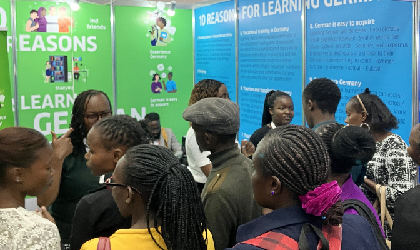By Mercy Nabwire Ouma
Introduction
Across postcolonial Africa, the challenges confronting labour are not merely economic, they’re deeply political. Democratic transitions were hailed as paths to human dignity, yet workers often found themselves burdened instead by mounting debt, layoffs, and systemic repression.
Democracy’s Hollow Promise
In the 1990s, Mali’s shift to multiparty democracy ended Mussа Traoré’s brutal rule. The momentum for civil liberties, political pluralism, and an empowered public sphere rose, propelled by trade unions, students, and civil society. But this political freedom came at a steep price: structural adjustment programs (SAPs) dismantled public institutions, suppressed wages, and privatized state enterprises. As scholar Issa Shivji warned, African democracy was being asked to stand on “one leg”—political freedom without economic sovereignty.
Informalisation of Labour
Resulting austerity severely curtailed social spending. Institutions were privatized, labour protections dismantled, and the informal sector ballooned. Today, more than 80% of Malian workers, like many across Africa, operate outside legal recognition, excluded from collective bargaining and social safeguards. Traditional trade unions, geared toward formal-sector workers, struggle to adapt.
The Rise of Militarised Neoliberalism
The 2012 coup in Mali, amid jihadist insurgency, heralded a new era of militarised development under the guise of counterterrorism and stabilization. Donor nations, including France, the EU, the US, and the UN framed the unfolding crisis as a fight against terrorism. This resulted in frozen public-sector wages, soaring military budgets, and the outsourcing of security to private firms. Meanwhile, union activity became criminalized, and strikes were reframed as threats to state stability.
Austerity Meets Repression
This fusion of austerity and militarization forged a dangerous new paradigm, what can be described as militarised neoliberalism: strikes suppressed by riot police, social protections substituted with securitization, and dissent equated with destabilization. In effect, democracy turned performative, and labour became a liability.
Regional Echoes
Mali’s trajectory is not unique. From Kenya, where medical professionals have faced military intervention, to Sudan’s protests met with deadly force, and Nigeria’s erosion of union rights via legislation, the pattern of narrowed public goods combined with heavy-handed coercion is continent-wide.
Labour’s Resilience
Despite these oppressive conditions, workers remain resolute. In Mali, teachers, health workers, and civil servants continue to strike, often under surveillance and threat. Across Africa, informal workers are forming new collectives; street vendor alliances, transport worker networks, gig-worker groups; as emergent forms of organization, even if under-resourced and under-reported.
Toward a Political Break
What’s needed transcends technical reform. Africa’s workers need a political rupture, a rejection of the narrative that frames public services as burdens and labour as expendable. We must reclaim labour’s role not just as a negotiating body but as a political force capable of confronting the state.
As Frantz Fanon cautioned, postcolonial states can replicate colonial control, replacing foreign rulers with local elites wielding the same machinery of oppression. And as Walter Rodney powerfully put it, development devoid of justice is simply another form of dispossession.
Conclusion
It’s time to end the era of militarised neoliberalism. Workers deserve more than just survival, they deserve sovereignty, political voice, social protection, and the power to shape the future they create through their labour. Africa’s workers have been marginalized far too long. It’s time we listened.






